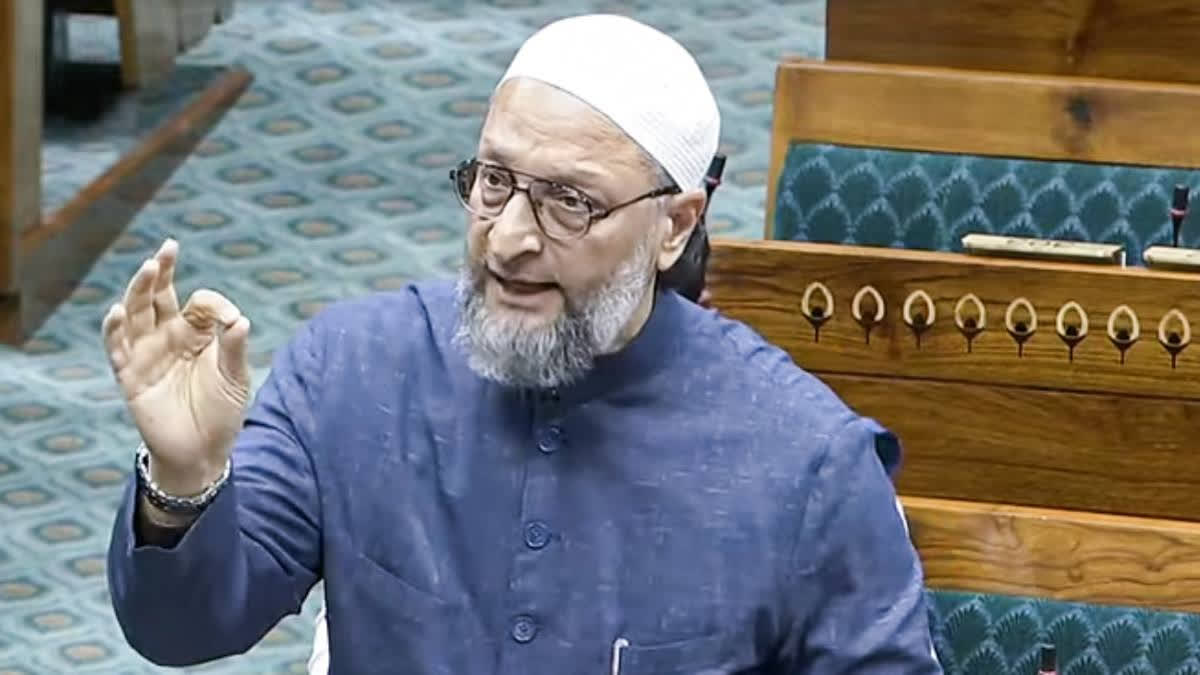New Delhi: AIMIM leader Asaduddin Owaisi on Monday said the Waqf Amendment Bill, in its current form, will lead to social instability as it has been rejected by the Muslim community.
Participating in the debate on the President's Address, Owaisi said that the Bill has been rejected by the entire Muslim community and its implementation would take this country back to the 1980s and early 1990s.
"I am cautioning and warning this government - if you bring and make a Waqf law in the present form, it will be violation of Article 25, 26 and 14, it will lead to social instability in this country. It has been rejected by the entire Muslim community. No Waqf property will be left, nothing will be left," Owaisi said.
"You want to make India 'Viksit Bharat', we want 'Viksit Bharat'. You want to take this country back to the '80s and early '90s, it will be your responsibility. Because, as a proud Indian Muslim, I will not lose an inch of my Masjid... I will not lose an inch of my Dargah. I will not allow that," he said.
"We will no more come and give a diplomatic talk over here. This is the House where I have to stand and speak honestly, that my community - we are proud Indians. It is my property, not given by anyone. You cannot snatch it away from me. Waqf is a form of worship for me," Owaisi said.
Earlier in the day, opposition MPs Kalyan Banerjee (Lok Sabha) and Md. Nadimul Haque (Rajya Sabha) strongly protested the removal of key portions from their dissent notes submitted to the Joint Parliamentary Committee (JPC) on the Waqf (Amendment) Bill, 2024.
In a letter to Lok Sabha Speaker Om Birla, the MPs alleged that their objections were arbitrarily deleted without prior notice or explanation.
The Joint Committee of Parliament scrutinising the Waqf (Amendment) Bill on Wednesday adopted its report and the amended version of the proposed law with a majority vote, the panel's chairperson Jagdambika Pal said.
Opposition members voiced their strong criticism of the adopted Bill, which was approved with 15-11 votes, alleging that it was "unconstitutional" and would destroy the Waqf board by allowing for the government's interference in the religious matters of Muslims.



